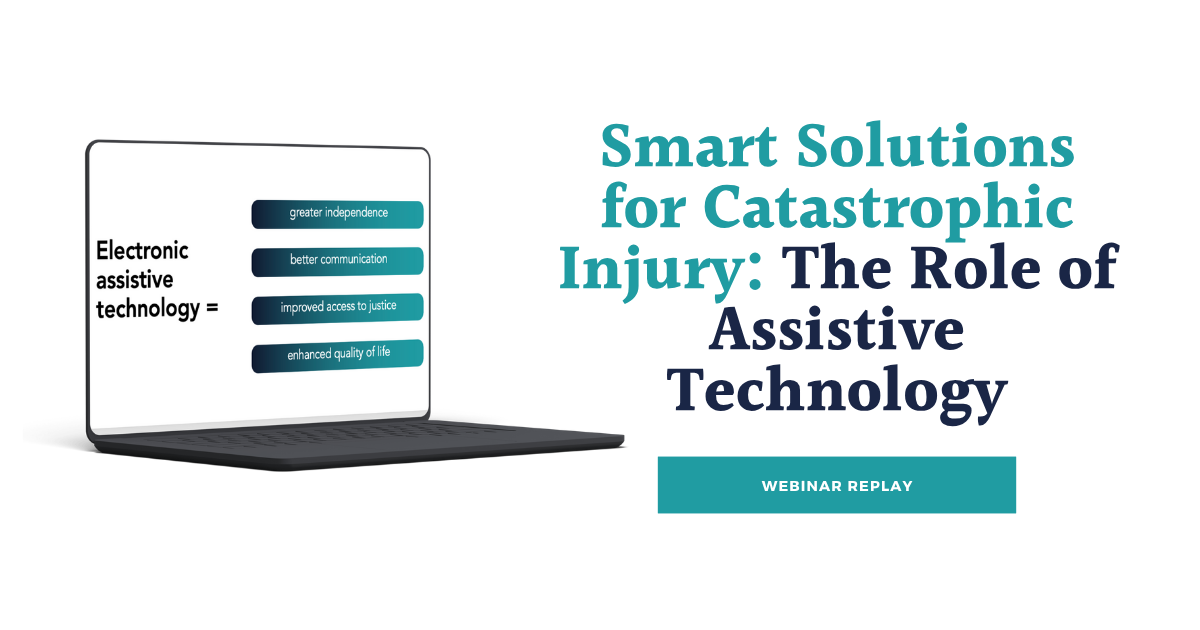Electronic Assistive Technology (EAT) and Environmental Control Systems (ECS) can transform lives after serious injury, yet many people, including legal and clinical professionals, are unaware of just how powerful these tools can be.
Following a brain or spinal injury, independence often depends on more than physical recovery. Everyday tasks, such as turning on lights, making calls, and sending messages, can become barriers to independence and communication. That’s where EAT and ECS come in. These technologies give people control over their environment, their communication, and their daily routines, restoring both function and confidence.
To help professionals understand this growing field, we’ve shared the recording of our recent webinar, Smart Solutions for Catastrophic Injury: The Role of Assistive Technology, presented by Graeme Marsh, NRC Medical Expert and former Clinical Lead for Regional Environmental Control and Communication Aid Services within the NHS.
Drawing on over two decades of clinical and engineering expertise, Graeme explained how EAT, from adapted computers and voice-activated devices to advanced mobility systems, supports recovery, independence, and access to justice. He demonstrated how ECS integrates with switches, joysticks, voice and eye-gaze technology to give users seamless control over their home, safety, and communication.
This webinar is designed for solicitors, case managers, and clinicians involved in serious injury and rehabilitation cases. It offers practical insights into:
- How EAT and ECS assessments demonstrate ongoing care and equipment needs in medico-legal claims.
- The measurable impact of assistive technology on quality of life, participation, and emotional wellbeing.
- Case studies showing how technology restores independence and reduces long-term care requirements.
📺 Watch the webinar
Please note, one video has been removed for copyright reasons.
For legal teams, clinicians, and case managers
Whether you’re supporting a client through rehabilitation, assessing long-term needs, or preparing an expert report, understanding EAT and ECS can help you make stronger, evidence-based recommendations that improve client outcomes.
Need expert input on a case?
You can instruct Assistive Technology Specialist Graeme Marsh to provide:
✔ Expert witness reports
✔ Assessment and specification of EAT and ECS solutions
✔ Costing and evidence of ongoing care needs
✔ Advice for case managers and rehabilitation teams
✔ Clinical oversight for clients with complex physical disabilities requiring adaptations
📩 enquiries@nnrc.org.uk
📞 0191 466 1406
🔍 Search our directory to find an Expert Witness

